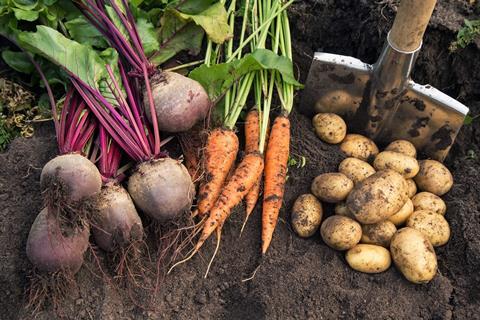Scottish Government has long-term plans to double the area of organic farmland
Organic farmers and crofters will automatically be eligible for government support payments in a post-Brexit policy change to incentivise sustainable farming in Scotland.

The Scottish Government – which is aiming to double its organic farmland – now requires farmers to create a whole-farm plan for protecting nature and climate to qualify for the Basic Payment Scheme (BPS).
Unlike England, Scotland is retaining the BPS system used in the EU’s Common Agricultural Policy, under which payments are made to farmers based on the amount of land being farmed.
Soil Association Scotland notes, however, that changes are being made in Scotland around eligibility for the scheme, including a new requirement for a whole farm plan. The Scottish Government has recognised this is already a key part of organic farming, the organic charity pointed out.
To receive payments, farmers and crofters will need to submit information to government covering how their entire farm system will deliver in five areas – animal health and welfare, biodiversity, integrated pest management, carbon, and soil analysis.
All BPS applicants must complete at least two of these five audits by 15 May 2025, and all others relevant to their business by 2028.
Any farmer who is certified organic will automatically qualify for the animal health and welfare and integrated pest management areas, due to requirements in organic for farmers to deliver high animal welfare and use natural solutions over pesticides.
Soil Association Scotland co-director David McKay said: “Organic farmers have always taken a whole-farm approach to protecting the environment and we are delighted that the benefits they deliver are being recognised by Scottish Government. Farmers and crofters are under pressure to deliver for nature and climate, and organic is increasingly an obvious solution with UK demand for organic products rising and backing from government.
“The requirement for whole-farm planning is also great news for all farmers as the evidence clearly shows that this approach can help to deliver resilience and support food security. Being specialised can carry a lot of risk, especially in the face of climate change and extreme weather.
“If farmers can be supported to consider how they might create different enterprises while protecting natural habitats, that is a win-win solution for everyone. For example, they may be able to find a market to sell the crops they use to restore soil health, or bring in livestock to graze it.
”Taking a landscape view also means any farmer can look at using nature-based methods to protect against pest and disease, which can save them money in avoiding expensive artificial pesticides and fertilisers.
“But it is a big mindset change so we are pleased to be offering support services to help farmers pick up the skills they need in this transition.”



